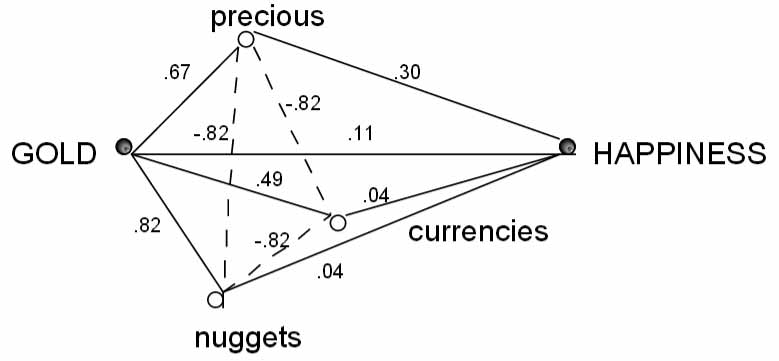Here is an example of an easy metaphor: “My lawyer is a shark.”
Here is an example of a difficult metaphor: “Happiness is a ditch.”
Notwithstanding whether or not you have already given up trying to interpret the second one, the question may still be asked: “What makes a metaphor difficult to understand?” which is one of the metaphor-based discussions which can be found via the portal of www.metaphorik.de a forum for scientific exchange concerning questions about metaphor and metonymy. The examples above are provided by Emertius professor Walter Kintsch and Anita Rachelle Bowles of the Department of Psychology at the University of Colorado, US, who used Latent Semantic Analysis (LSA) in a 300-dimensional semantic space to analyse the results of metaphor-based experiments (of the form NOUN1 IS A NOUN2) with 24 undergraduate students.
“[…] metaphors that are judged to be easy to comprehend are interpreted in similar ways by most people, whereas a greater range of interpretations exists for difficult to comprehend metaphors. However, people agreed among each other to some extent, even when the metaphors they were asked to interpret appeared to be pure nonsense. Faced with the seemingly impossible task of finding an interpretation for such metaphors, people do not give up (a failure to respond was observed in only in 7% of the cases); instead they come up with something, and there is a certain consistency among people in how they respond.”
See: Metaphor comprehension: What makes a metaphor difficult to understand? (published in the journal Metaphor and Symbol, Volume 17, Issue 4, October 2002, pages 249-262)
Note: The diagram shows an LSA network of the metaphor ‘Happiness is gold’
Bonus task (optional) : Construct a metaphor (as hard as you like) taking the form NOUN1 IS A NOUN2 and post it as a comment below.
